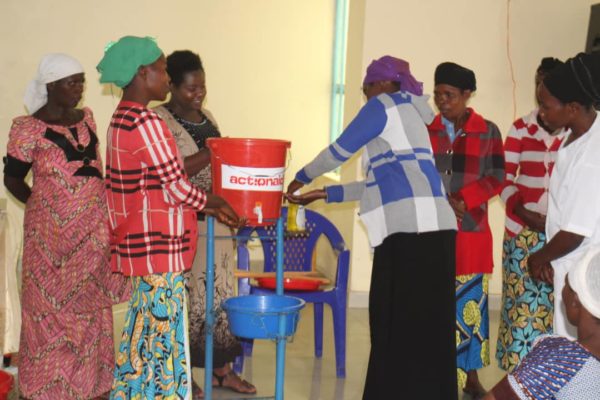This coronavirus is highly infectious across all facets of society – and as frontline carers in the health system and at home, women are at greater risk of contracting it. We saw this during the 2014 Ebola outbreak when women accounted for 75% of those that fell victim to the virus, largely as a result of being the primary caregiver.
As ActionAid scales up response efforts to the COVID-19 pandemic, we are working with women on the ground to provide them with the support and tools they need to lead their communities through this health crisis.
The experience of responding to the Ebola crisis in Liberia, Sierra Leone and Democratic Republic of Congo (DRC) reinforced that public health campaigns led by local people, in local languages is the most effective strategy in preventing disease outbreak.
From the onset of the outbreak in 2014, ActionAid worked with local women’s organisations and networks across the country to activate a door-to-door campaign to provide information on disinfecting homes and guidelines for responding to and limiting contact with sick people.
Over the duration of the Ebola pandemic, women’s organisations were able to reach more than 500,000 people across Sierra Leone and Liberia to prevent deaths.

As well as establishing themselves as a central communication hub, the women’s organisations were able to distribute much-needed resources crucial to slowing community transmissions of the virus. Sanitation kits containing chlorine, gloves, antiseptic soap, disinfectants and protective clothing were provided to 17 medical facilities across impacted districts in Sierra Leone and Liberia.
Women across the impacted regions were also supported to do contact tracing and case management and lead the distribution of basic necessities for families in quarantine. Food packages were delivered to 550 households including staples like rice, oil and most importantly, hygiene products.
As we did during the Ebola pandemic, ActionAid is scaling up support to women’s networks to lead a coordinated response to stop the spread of the deadly coronavirus in their communities.
You can help support women on the frontlines of health crises like COVID-19.